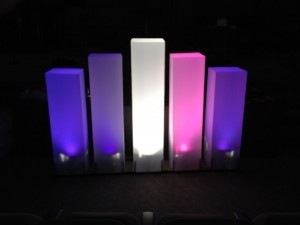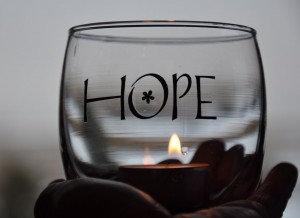Jeremiah 33:14-16; Luke 21:25-36
First Sunday of Advent
November 29, 2015
25 “There will be signs in the sun, the moon, and the stars, and on the earth distress among nations confused by the roaring of the sea and the waves. 26 People will faint from fear and foreboding of what is coming upon the world, for the powers of the heavens will be shaken. 27 Then they will see ‘the Son of Man coming in a cloud’ with power and great glory. 28 Now when these things begin to take place, stand up and raise your heads, because your redemption is drawing near.”
29 Then he told them a parable: “Look at the fig tree and all the trees; 30 as soon as they sprout leaves you can see for yourselves and know that summer is already near. 31 So also, when you see these things taking place, you know that the kingdom of God is near. 32 Truly I tell you, this generation will not pass away until all things have taken place. 33 Heaven and earth will pass away, but my words will not pass away.
34 “Be on guard so that your hearts are not weighed down with dissipation and drunkenness and the worries of this life, and that day does not catch you unexpectedly, 35 like a trap. For it will come upon all who live on the face of the whole earth. 36 Be alert at all times, praying that you may have the strength to escape all these things that will take place, and to stand before the Son of Man.”
 This is weird stuff in Luke’s gospel, isn’t it? It’s a strange way to start the Advent and Christmas season. Where’s the baby in a manger and angels and shepherds? Cosmic signs in the heavens, the earth shaking, Jesus skateboarding on a cloud–this is all very strange. What we’re seeing and hearing is called apocalyptic, a special type of biblical literature. It’s frequently used by Jesus, but only for those occasions when he wanted to shake the foundations, to tear the hinges off the doors, up-set a pew or two. Apocalyptic is a poetic way of saying through the inadequate medium of human language: God is coming. That’s what all this means. God is coming, either coming for us, or to grab us, to redeem us, and to judge us. God is coming.
This is weird stuff in Luke’s gospel, isn’t it? It’s a strange way to start the Advent and Christmas season. Where’s the baby in a manger and angels and shepherds? Cosmic signs in the heavens, the earth shaking, Jesus skateboarding on a cloud–this is all very strange. What we’re seeing and hearing is called apocalyptic, a special type of biblical literature. It’s frequently used by Jesus, but only for those occasions when he wanted to shake the foundations, to tear the hinges off the doors, up-set a pew or two. Apocalyptic is a poetic way of saying through the inadequate medium of human language: God is coming. That’s what all this means. God is coming, either coming for us, or to grab us, to redeem us, and to judge us. God is coming.
You see Advent means “to come” and we usually associate it with Christ’s first coming. But the risen Christ also comes to us today as the Holy Spirit and promises at some unknown time in the future to come again. Many of the gospel texts during the first week of advent focus on this Second Coming which demonstrates that God is still active and unpredictable, just like at the first coming. We call all this stuff eschatology. It’s from the Greek term ta eshata which means “the last things.” It tells us that history is going someplace. It has a destination and a purpose and that the choices we make matter.
Apocalyptic language is poetry not a scientific or historical prediction of the future. Luke and the other gospel writers paint with broad brush strokes, not minute brush detail. We invite misunderstanding when we try to turn metaphor into literal description. Lots of folks keep a narrow focus on Jesus’ words: “Truly I tell you, this generation will not pass away until all these things have taken place.” (Luke 21:32) People like Jerry Jenkins and Tim LaHaye capitalized on this with their Left Behind book series. According to this theology (which is only about 150 years old) Jesus was speaking about the generation of people who saw the reconstitution of the state of Israel in 1948. There would be a time when true believers would be taken up to heaven, an event called the Rapture, and non-believers would be left behind to do battle with the anti-Christ and all sorts of tumult and disaster. It is a Gospel of fear, not one of hope or of mercy. You see, generation can mean a 30 year time period which is about the length of a generation or it can also refer to an indefinite number of years that’s marked by suffering, waiting or witnessing (Fred Craddock). I think it’s both.
 Luke was writing his gospel some 15 to 20 years after Jerusalem had been sacked and burned and the Second temple toppled by Roman armies. The destruction and judgment Jesus spoke about with his disciples in this passage was the Jewish Roman War which happened in their lifetime. He was also trying to help the believers of his day make sense of these traumatic events. Early Christians expected Jesus to come again in their lifetime. They were still expecting God’s kingdom to show up in some spectacular fashion, but it didn’t. Luke is telling his readers that sometime God is going to sew this whole human drama up. Nothing temporary can last forever.
Luke was writing his gospel some 15 to 20 years after Jerusalem had been sacked and burned and the Second temple toppled by Roman armies. The destruction and judgment Jesus spoke about with his disciples in this passage was the Jewish Roman War which happened in their lifetime. He was also trying to help the believers of his day make sense of these traumatic events. Early Christians expected Jesus to come again in their lifetime. They were still expecting God’s kingdom to show up in some spectacular fashion, but it didn’t. Luke is telling his readers that sometime God is going to sew this whole human drama up. Nothing temporary can last forever.
But this passage is also profoundly relevant, profoundly timely, for our generation and for every generation not because it predicts the future, but because it describes the state of the world in every generation. Jesus is not speaking to our specific circumstances, but to the ways in which the powers of the world are corrupt, how it seems that the power of God is always being compromised, and the sense that all we know and trust seems to be crumbling around us. Yes, Jesus speaks the truth, not about our future, but about our condition, our brokenness, our warring, our suffering, our calamities and that never really changes.
In this generation, right now, late in the year 2015, it appears that we will be celebrating Advent and Christmas under the shadow of ISIS and all the mayhem it is unleashing on the innocent (and all the bombing campaigns and police raids the rest of the world is carrying out in response). The nations of this world are in tumult and respond the only way they mostly know how: meeting fire with fire.
Jesus also warns of “distress among nations confused by the roaring of the sea and the waves” (Luke 21:25). Boy, that’s relevant for our day, isn’t it? The climate is in crisis, and the evidence is clear: it’s our fault. Sea levels have risen to the point where many low-lying nations are actively looking to move their people to higher ground. Bill McKibben, a climate activist and United Methodist layman, commenting on this passage said, “The roaring and the tossing of the seas is already perplexing and anguishing us. On an ocean planet we’ve managed in short order to make the seas 30 percent more acidic; their level is rising rapidly, and it appears we’ve started the irreversible melt of Greenland and the West Antarctic.” He added that new research indicates that “if we burned all our fossil fuel, it will eventually raise the level of the oceans 200 feet.” We need to pray as the Paris Climate Conference convenes tomorrow that they might arrive at the first legally binding international climate treaty.
But if this were the only side of the story, we might as well pack up and go home. If this is the way it will always be we should despair. But this passage is saying something opposite of that. Jesus tell us that in the midst of all this chaos are signs of redemption:
Now when these things begin to take place, stand up and raise your heads, because your redemption is drawing near.
 We in the church believe that the kingdom of God is the greater reality, even right now. That’s what the first coming was all about—Jesus said, “The Kingdom of God is among you.” We believe that the kingdom is spreading like yeast in dough, like a seed germinating and sending down roots silently in the soil. We believe Jesus HAS come once and WILL come again and all that we do—how we pray, how we worship, how we preach in especially times of fear and tumult, how we treat our neighbor—witnesses to our fervent belief that Jesus still redeems and heals and turns this world right side up.
We in the church believe that the kingdom of God is the greater reality, even right now. That’s what the first coming was all about—Jesus said, “The Kingdom of God is among you.” We believe that the kingdom is spreading like yeast in dough, like a seed germinating and sending down roots silently in the soil. We believe Jesus HAS come once and WILL come again and all that we do—how we pray, how we worship, how we preach in especially times of fear and tumult, how we treat our neighbor—witnesses to our fervent belief that Jesus still redeems and heals and turns this world right side up.
Therefore, we declare a hope that is grounded not in a Utopian vision, but a truth that chooses hope instead of fear; that believes in in the power of love instead of the love of power; that trusts that God will bring justice and righteousness, if not in our time, then in God’s time.
We don’t hear much apocalyptic talk around here, do we? Historic, mainline Protestantism lacks the language of shaking heavens, seas, and waves. We want to tone it down; don’t want people thinking we’ve gone off the deep end. We don’t know what to do with speech like this.
People will faint from fear and foreboding of what is coming…the powers of heaven will be shaken. Then they will see ‘the son of man coming in a cloud’ with power and great glory.
We are uncomfortable with such talk because life has been pretty good for us. We make a decent living, are well-educated, have good, middle-class values. This talk of shaking things up makes us nervous. People who work in large corporations, who work in universities, for the military or in the government, people who have profited from the status quo, twitch upon hearing this kind of talk.
However, those on the bottom, the small and the poor, those who have little to gain from the preservation of what is, tremble with delight upon hearing bible talk about what, by God’s grace, might be. That’s why this would be good news to Luke’s hearers. The Romans are going to get their clocks cleaned.
Preacher Will Willimon shares a story from Mary Chestnut’s Diary entry of March 1865 as the Civil War was coming to its scorched earth conclusion. She lives in Columbia, South Carolina and writes: “Sherman marched off in solid column, leaving not so much as a blade of grass behind. A howling wilderness, land laid waste, dust and ashes,” (p. 734). It’s the end of the old south. Mrs. Chestnut neglected to mention, in her tale of devastation and woe: the slaves were dancing in the streets. See? It all depends on where you are standing as to your reaction to apocalyptic news. Luke’s picture here of Jesus is the conquering king holding the world in his palm, not Jesus as the friend of little children.
Yes, indeed. Most of what passes for cure these days is merely temporary relief. We have a pill for the pain, but the cause of the illness is beyond us. Alas, we reduce Jesus to the merely personal, the friendly therapist who will make us feel better. We come to church for help to make it through the week, to receive hints for better living. We know not what to make of times when signs appear in moon and stars, the sea roars, the heavens shake. “I believe Jesus was a great teacher, a fine moral example.” “Jesus is a good friend who can help you make it through the week.” OK. Good enough for many of life’s hassles. But not good enough for the cancer that can’t be cured, the clash of super powers, terrorism and genocide–large, fundamental, humanly irresolvable situations in which we sometimes find ourselves. Even the expansive human heart is too small a screen on which to cast this grand gospel scene.
Now when these things take place, stand up and raise your heads, because your redemption is drawing near…when you see these things taking place, you know that the kingdom of God is near.
Listen carefully if there are any of you here today who cannot be helped by a pill, a noble, uplifting idea, or a call to greater effort, because today’s text speaks to you. As Monica Helwig once said, “If it won’t play in a cancer ward or a shoddy nursing home for the elderly, then whatever it is, it is not the gospel.”
We need not know the details of the “last days” or “second coming” described by Jeremiah, Jesus or Paul. I like C.S. Lewis’s analogy that we are actors in a very real drama. We don’t know everything about the play, whether we’re in the first or last act, or even which characters play the minor and major roles. In our unawareness, we really have no idea when the play will End or should end. But the plot will find fulfillment, even if our limited understanding right now disguises it. Perhaps the Author will fill us in after it is over, but for now Lewis says, “Playing it well is what matters infinitely.”
And that is what I want you to take home from this message this week: “play it well.” Jesus warns us that just as we know that summer is near when certain flowers bloom, we should not let the anxieties of life weigh us down so that the end “closes on you unexpected like a trap.” Rather, he tells us to live carefully, to watch, and to pray that we “may be able to stand before the Son of Man” (Luke 21:34–36). Be on guard, says Jesus, that you don’t get so weighed down with all the stuff of this life that you miss the really important stuff. “Stand up and raise your heads because the Kingdom is coming.”
Jesus’ words are meant to raise our heads and raise our hopes. Could justice really come to the earth? Could husbands quit beating up their wives, and could wives quit blaming themselves? Could Palestinians and Israelis look into each others eyes and see a brother or a sister? Could some of us who struggle with addictions, or with diseases that trap us–could we be liberated by God, and start to walk tall in the Kingdom of God? Could Jesus Christ appear among us in some way that would stop us from demonizing those who are different than us? If we believe in the Kingdom of God we will pray, and we will hope for those without much hope left. And one more thing, one more tough thing. We will work in the same direction as we hope. We will try tobuild today the vision that God has given us of tomorrow.
 In a wonderful book entitled Standing on the Promises, Lewis Smedes says that hoping for others is hard, but not the hardest. Praying for others is hard, but not the hardest. The hardest part for people who believe in the second coming of Jesus Christ is in “living the sort of life that makes people say, ‘Ah, so that’s how people are going to live when righteousness takes over our world.” The hardest part is simple faithfulness in our work and in our attitudes–the kind of faithfulness that shows we are being drawn forward by the magnet force of the Kingdom of God.
In a wonderful book entitled Standing on the Promises, Lewis Smedes says that hoping for others is hard, but not the hardest. Praying for others is hard, but not the hardest. The hardest part for people who believe in the second coming of Jesus Christ is in “living the sort of life that makes people say, ‘Ah, so that’s how people are going to live when righteousness takes over our world.” The hardest part is simple faithfulness in our work and in our attitudes–the kind of faithfulness that shows we are being drawn forward by the magnet force of the Kingdom of God.
According to a story I once read, over two centuries ago the Connecticut House of Representatives was in session on a bright day in May, and the delegates were able to do their work by natural light. But then something happened that nobody expected. Right in the middle of debate, the day turned to night. Clouds obliterated the sun, and everything turned to darkness. Some legislators thought it was the Second Coming. So a clamor arose. People wanted to adjourn. People wanted to pray. People wanted to prepare for the coming of the Lord.
But the speaker of the House had a different idea. He was a Christian believer, and he rose to the occasion with good logic and good faith. We are all upset by the darkness, he said, and some of us are afraid. But, “the Day of the Lord is either approaching or it is not. If it is not, there is no cause for adjournment. And if the Lord is returning, I, for one, choose to be found doing my duty. “I therefore ask that candles be brought.”
Friends, “stand up and raise your heads because the Kingdom is coming.”
